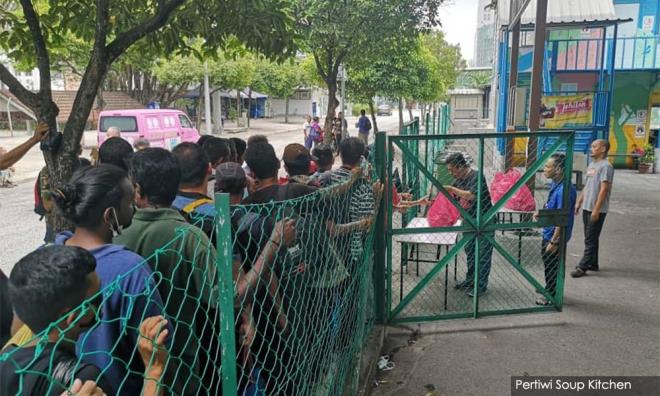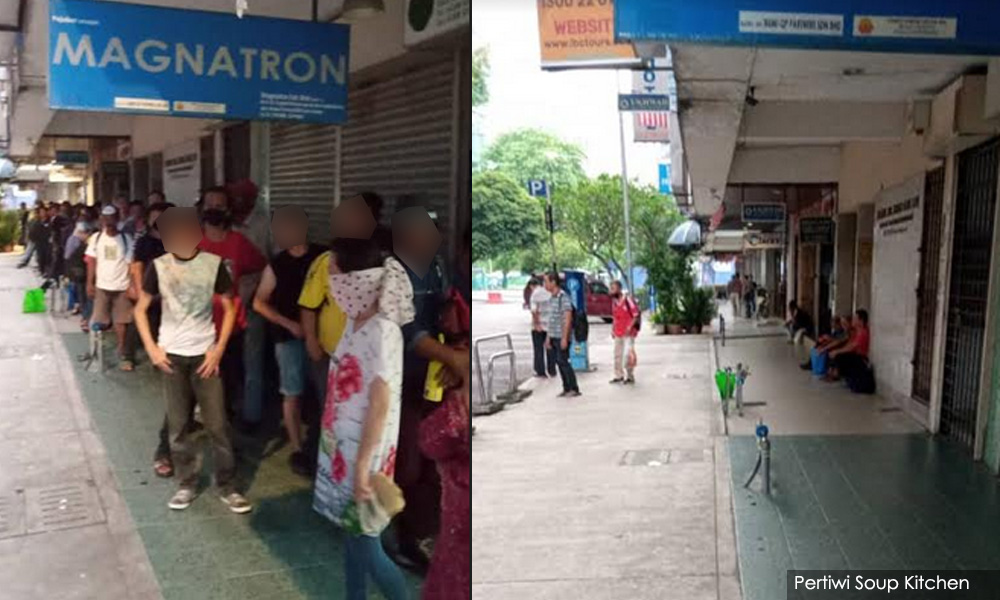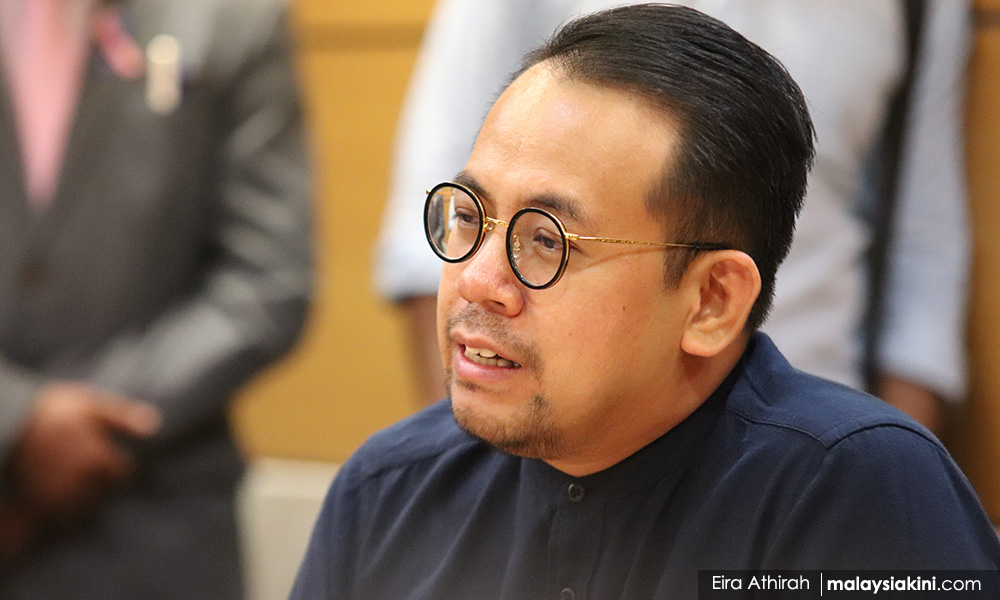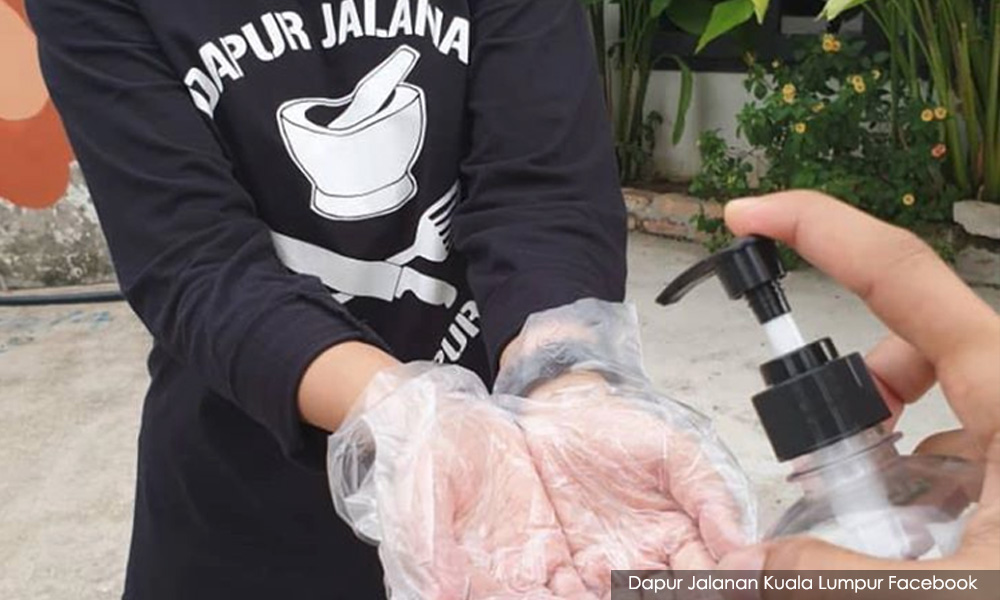
"The fact that certain communities remain underserved shows that they have existed long outside the government's radar."
- Kampung Tunku assemblyperson Lim Yi Wei
Defence Minister Ismail Sabri's comments on NGOs distributing food to the disenfranchised are much appreciated, but telling the NGOs to limit their movements by leaving it to the state to distribute food is misguided - but then, what do you expect from this government?
Ismail made this rather ludicrous comment “...We can't have part of the population moving freely distributing food.” This is bizarre because we already have part of the population - the state security apparatus, doctors, nurses, other essential service workers, and the myriad of state operators - moving around carrying out duties which are deemed “essential”.
From the reportage: “When contacted, an aide to Ismail reiterated that NGOs were not prohibited from contributing their services. Taking into consideration the risks faced by NGOs, the aide said Ismail had issued the advice for donations to be channelled through the nearest state Social Welfare Department office.”
In other words, these NGOs, which have myriad methods of collecting donations, would now have to centralise their collection methods, then channel them to the government agency, which would then distribute them to the relevant people. This is even not taking into account that NGOs serve localised communities, who are most probably never on the radar of the state.
Does this make any sort of sense, to anyone? It is times like these that being a global kleptocracy could come in handy. While the narrative, especially in the far-right blogosphere, is that of “Chinese” robber barons milking the country, where are all the Ku Nan, who think two million is a pocket change?

Why is the Perikatan Nasional (PN) regime hijacking and hampering relief efforts by NGOs distributing food when it has acknowledged that there have been disruptions in the food supply chain? The PN government keeps asking the rakyat for money but where are all the kleptocrats who have dipped into the cookie jar when the country is in need?
You can bet your last ringgit that while these charlatans are hoarding their stolen loot, they still have time to fund the efforts of the various outsourced thugs who carry on the racial and religious provocations of their employers and engage in open online warfare while the majority of the rakyat suffers.
The Social Welfare Department, meanwhile, issued this statement: "To ease the process of managing donations, the Women and Family Development Ministry will mobilise its officers from agencies under its purview."
In other words, more bureaucracy is going to be added to a problem, instead of allowing the stable distribution of food to people who have become comfortable with NGOs delivering food. Instead, the state will march up to your doorstep and deliver food that you may not exactly need because the state has no idea of the complexities of what individual communities or people need.

The always reliable Bukit Mertajam MP Steven Sim (above) said: "I'm not just saying this, but as director of Penang 'Lawan Covid-19', I see how our frontliners are exhausted. And now you're asking them to arrange the logistics of collecting, stock-taking and distribution of supplies?” Which is correct but more importantly, demonstrates how the government does not really think things through.
First off, I consider NGOs that work closely with disenfranchised communities as being part of the frontlines in this war. I do not mean Twitter activism or any of that nonsense of “paid activists” but rather organisations – mostly loosely affiliated – working on the ground improving the lives of marginalised communities even before the pandemic.
While some of these organisations only sprung up in this time of need, others have done the groundwork and have the goodwill of disenfranchised people who they have helped for years. The government intervening on “health” concerns does seem logical, but as I stated above, this all depends on what you consider “essential” services.
While the police, Rela and other affiliated personnel would best serve the community by cautioning and advising folks to abide by the movement control order, the distribution of food, especially to communities that have been neglected for years by the state, should be left to NGOs and community leaders.
Deciding that the state should be the only one distributing aid to the disenfranchised is problematic for a variety of reasons. The first is that the state is already grappling with the logistics of food distribution and figuring out how to manage services and the assortment of affiliated industries linked to food production.
As Sim rightly pointed out, throwing another responsibility to state operators already bogged down with conflicting orders, or not well thought out orders from the political class, is merely causing more stress to the bureaucracy.
Look at it this way. The government wants to set up a distribution centre where the NGOs deliver food and then the government delivers the food to residents. In other words, the government wants to be the middleman for some odd reasons.
What the government wants to do as the “middleman” is send out its own personnel delivering food that the NGOs collected. So what is the difference between agents of the state delivering food and NGOs?

Now, if the state was really concerned about the health practice of these NGOs, they could set up guidelines which must be strictly adhered too. This is important, and if the government was thinking things through instead of suddenly coming up with trigger happy proposals, this would be something.
And let us face the facts here. Because everything is based on race and religion in this country, many disenfranchised people will think that they do not “qualify” for aid or would think they are being left out by the bureaucracy.
In most civilised countries, the rakyat, through individuals and NGOs, are working with the state to ease the burden of frontliners and the general population. You can watch stories of them online in news reports. Here in Malaysia, the state wants to add another layer of bureaucracy and control the way how the rakyat helps itself.
Why is that?
S THAYAPARAN is Commander (Rtd) of the Royal Malaysian Navy. A retired barrister-at-law, he is one of the founding members of Persatuan Patriot Kebangsaan. - Mkini



No comments:
Post a Comment
Note: Only a member of this blog may post a comment.